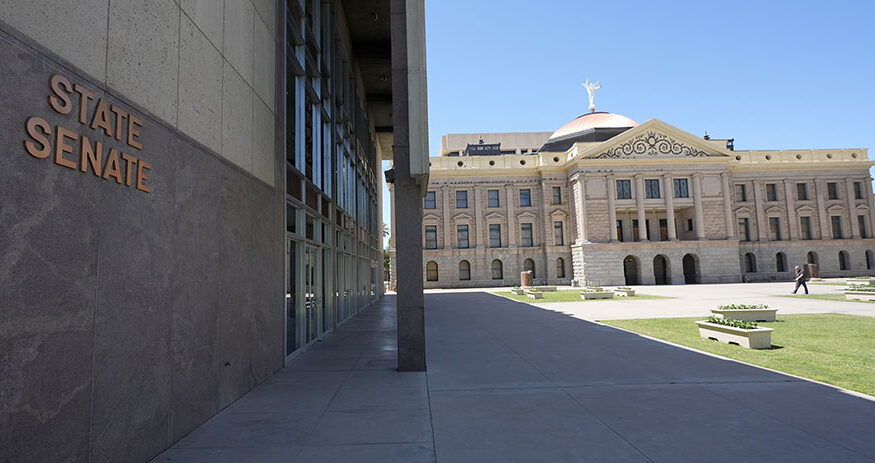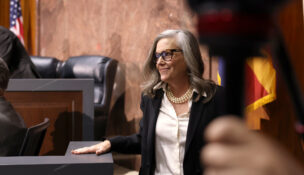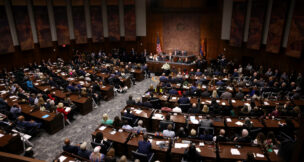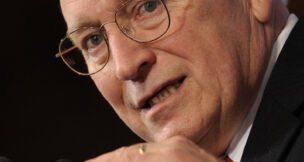Tight races could leave Senate equally divided
Hannah Elsmore Arizona Capitol Times//August 9, 2024//
Tight races could leave Senate equally divided
Hannah Elsmore Arizona Capitol Times//August 9, 2024//
With Democrats aiming to flip the Legislature and Republicans defending their slim majority, consultants said the Senate could see an equally split chamber for the first time since 2000.
The 2022 legislative districting map has brought up highly competitive general races in key districts – and similar campaign strategies.
Democrats are vying for the majority after more than 20 years of Republican control. The GOP majority has slimmed in the past 10 years, but Republican candidates championed a two-seat lead in both the House and Senate in the 2022 general election.
With most primary election results called, GOP consultant Chuck Coughlin said the Senate could see an equally split chamber for the first time since 2000.
As it stands, the chamber is led by Republicans with a 16-14 majority and Democratic campaigns are applying pressure to every legislative district that could sway blue.
The minority party is running heavily-funded candidates for Senate seats in six close competitive districts. Campaigns on both sides of the aisle are encouraging voters in highly contentious districts to reject their opposing general election candidate for being too “extreme” for the area they seek to represent.
In the Republican-leaning Legislative District 17, former lawmaker Vince Leach ousted incumbent Sen. Justine Wadsack in the GOP primary. Leach is a less controversial general election candidate than Wadsack, Coughlin said, thus reducing the tightness of the race for Democrat candidates.
“There are other races that, at this juncture, look less competitive,” Coughlin said. “I forecast 15-15 right now.”
Mike Noble, CEO of Noble Predictive Insights, also said that primary results forecast a tighter battle for the majority.
“Pre-primary there was a decent shot, however, post-primary I’d say the field goal just got moved to the 50-yard line – not impossible, but a challenge,” Noble said of Democrats winning a tie in the chamber.
Though Leach is viewed as a less beatable candidate to some, the Arizona Democratic legislative campaign committee said in a written statement that he is “one of the most extreme legislators in his party and consistently prioritized special interests over his constituents.” John McLean, a businessman, is Leach’s Democratic competition.
The Democratic committee has undertaken a similar tactic at battleground districts across the state, urging voters to side with the less “extreme” candidate, but most of their target districts lean slightly Republican.
Noble and Coughlin both said a tie in the chamber could come down to Legislative District 2. The district, which encompasses northern Phoenix, is highly competitive and leans very slightly in favor of Republican candidates, according to the Arizona Independent Redistricting Commission.
Sen. Shawnna Bolick is the GOP incumbent of LD2. She beat her primary opponent, Josh Barnett, by about 7% of votes. Coughlin said the Senate seat is shaping up to be “Democrats’ number one pickup opportunity,” where the party is running Rep. Judy Schwiebert.
Democrat political action committees from in and out of state have funneled thousands into Schwiebert’s campaign effort. Bolick had $164,386 on hand, according to pre-primary finance reports, while Schwiebert led by nearly double with $327,518 on hand.
The Republican Arizona Senate Victory Fund PAC announced their own version of the “reject extremism” campaign strategy on Aug. 6, which specifically targets Legislative District 4. The slightly-GOP district is represented in the Senate by Democrat incumbent Sen. Christine Marsh, who they dubbed “Extreme Christine.”
The “Extreme Christine” campaign website took a similar strategy to ADLCC by telling voters to “send extreme Christine home” and lists her voting record on issues like immigration, school choice and taxes.
The only time a chamber has been tied in Arizona was in the Senate from 2001 to 2002. Republicans lost control of their majority during the 2000 general election.
At the time, Democratic lawmakers negotiated with former Sen. Randall Gnant, a Republican, and convinced him to be the president of the chamber on the condition that committees be split.
Former state Sen. Pete Rios, a Democrat, said in a 2011 interview with the Arizona Memory Project that Gnant was their first choice because he seemed “moderate enough for Democrats to work with.”
Rios recalled the dinner where Democrats convinced Gnant to lead the chamber: “I said, ‘Randall, if you say you’re going to do it, you’re going to do it, and we’re not leaving here until we sign this thing in blood. Once we leave here, you’re going to be president, you’re going to take a lot of heat, your people are going to call you every name in the book like God’s child, so you better be ready.’ He said, ‘I know it, I know it.’”














































